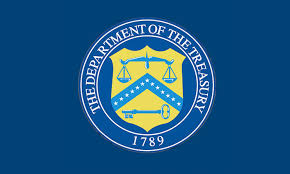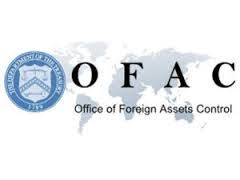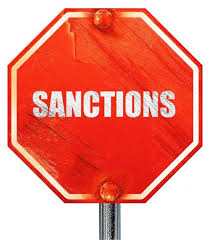Interpreting OFAC Sanctions: The Fine Line Between Compliance and Evasion

Matt Stankiewicz, Partner at The Volkov Law Group, joins us for a posting on compliance with OFAC Sanctions. Matt can be reached at [email protected].
Unsurprisingly, we’ve been fielding a significant number of inquiries regarding the latest Russian sanctions. Most companies seek black and white answers – what can we do and what can’t we do. However, sanctions are very rarely, if ever, that black and white, and instead carry a relatively significant amount of grey area. Unfortunately, creativity can get some companies into trouble despite attempting to comply to the letter of the regulations. In general, companies may seek comfort in applying narrow interpretations of certain phrases or terms, or in some cases propose “technical” interpretations that may in effect appear to circumvent or significantly frustrate the purposes of those sanctions. Companies can get into significant trouble with these technical interpretations, and regulators can easily view these technicalities as evasion or worse. From our experience with OFAC, we can say for certain that the agency is not necessarily receptive to these “technicalities” if they conflict with the agency’s goals.

Always keep in mind that OFAC’s mission is to accomplish foreign policy and national security goals and these sanctions regulations are a tool to achieve those objectives. As such, OFAC takes its role as an enforcement agency very seriously and interprets its regulations with a keen eye to its overall mission. On some occasions, OFAC will adopt expansive or unique interpretations of its regulations. Considering the importance of this mission, OFAC will do what’s necessary to accomplish it.
To put things into perspective, we frequently liken sanctions to economic warfare. In contrast to 40 to 50 years ago (and maybe more recent than that), geopolitical struggles would frequently require military intervention – boots-on-the-ground. Nowadays, however, the U.S. relies on its economic powers instead. As the latest Russian sanctions make clear, while we are not at “war” in the traditional sense, the U.S. is using its economic weapons against Vladimir Putin’s regime. As such, companies should be careful not to stymie or frustrate these interests.

The language in the regulations is only the beginning of analyzing what transactions are prohibited and what may be allowable. First, most new sanctions programs include a cache of other guidance, including a collection of FAQs. These FAQs help to define certain terms and phrases that are used in the initial executive orders, licenses, and statements. While helpful, very often this additional guidance answers some questions, while raising several new ones. For example, Executive Order 14066 prohibited “new investment in the energy sector in the Russian Federation.” Thankfully, OFAC issued FAQ 1,019 that defined this phrase to include “a transaction that constitutes a commitment or contribution of funds or other assets for, or a loan or other extension of credit to, new energy sector activities (not including maintenance or repair) located or occurring in the Russian Federation beginning on or after March 8, 2022.” The FAQ then continues to clarify that:
the energy sector includes the procurement, exploration, extraction, drilling, mining, harvesting, production, refinement, liquefaction, gasification, regasification, conversion, enrichment, fabrication, or transport of petroleum, natural gas, liquified natural gas, natural gas liquids, or petroleum products or other products capable of producing energy, such as coal or wood or agricultural products used to manufacture biofuels, the development, production, generation, transmission or exchange of power, through any means, including nuclear, electrical, thermal, and renewable.
While very helpful, the FAQ raises a number of questions — What does production mean specifically? What about transport? And so on and so forth.
In addition to the guidance, companies need to be attuned to OFAC’s intentions and expectations, and they must try to anticipate the agency’s interpretations and motives. Seasoned sanctions counsel frequently rely on historical enforcement actions to provide forward-looking guidance on the more recent regulations that may not yet have significant guidance. This may lead to an initially conservative interpretation in order to ensure compliance, especially early on while tensions are generally heated. This is especially the case with the current Russian sanctions, as the Biden Administration has made clear that they will be aggressively enforcing these regulations. This includes setting up a DOJ KleptoCapture Task Force to identify blocked property of the sanctioned Russian oligarchs, which is a new and aggressive step in sanctions enforcement.

With regards to OFAC extending its reach, we’ve seen the agency take some unusual actions in the past. The first example that jumps to mind is its enforcement action against Exxon back in 2017. At this time, OFAC had recently implemented a round of sanctions against Russia, including designating several Russian oligarchs as Specially Designated Nationals (“SDNs”). This round of designations included Igor Sechin, the CEO of Rosneft, which primarily impacted Mr. Sechin at a personal level, but did not prohibit all transactions with Rosneft. Shortly after this designation, Exxon entered into a variety of significant agreements with Rosneft to seal major partnerships. To celebrate these deals, Exxon’s CEO met with Mr. Sechin and had a ceremonial signing of the legal documents. There were pictures of this ceremony throughout the major news outlets, and it was broadcast on Russian television. OFAC subsequently brought an enforcement action against Exxon, determining that the company was in violation of the new sanctions by signing deals directly with Mr. Sechin, despite dealing with Mr. Sechin in a business capacity and not in a personal capacity. Exxon believed themselves to be compliant, while OFAC saw their actions as violations.
It is our belief that OFAC was furious to see one of the most prominent U.S. companies openly flouting their latest sanctions. OFAC characterized Exxon’s actions as an “egregious” violation and cited the company’s sophisticated understanding of sanctions regulations and its reckless disregard of known OFAC regulations. Watching Exxon openly celebrate with an individual OFAC thought to be adverse to U.S. national security interests surely did not sit well with the agency, and they made this move to, at the very least, send a message to other companies who might consider similar actions. Again, the focus was on national security interests and foreign policy objectives, and OFAC believed their actions to be in pursuit of these goals.

Exxon challenged OFAC’s actions and eventually prevailed in court nearly three years later. The initial enforcement action sought a $2 million civil penalty. Meanwhile, it’s certainly likely Exxon spent more than that on legal costs fighting in court. We now use this case to illustrate the potential outcomes for companies taking a narrow reading of the regulations or otherwise attempting to rely on a technicality. While they may have a legal argument to justify that their actions were not prohibited under their reading of the language, OFAC would, at the very least, force a company to defend that interpretation in court. The process would be expensive, frustrating, lengthy, and still carry potential reputational damage during the proceedings.
Interestingly, companies have to be careful to avoid a common trap similar to FCPA compliance – the use of third-party intermediaries as a means comply with sanctions programs. For example, can a company use an intermediary to make a payment to a Russian company that would be prohibited if committed by the company itself? This is a classic example of structuring transactions with the use of a third party to improperly “evade” a specific prohibition. This situation presents an important line between compliance and evasion.
First, some of the sanctions expressly prohibit such conduct. For example, the recent Directive 4 Under Executive Order 14024, provides, “the following are also prohibited: (1) any transaction that evades or avoids, has the purpose of evading or avoiding, causes a violation of, or attempts to violate any of the prohibitions of this Directive; and (2) any conspiracy formed to violate any of the prohibitions of this Directive.
Second, even when it is not specifically called out in the rules or regulations, OFAC has previously relied on causation and facilitation theories to impose penalties. Indeed, even foreign companies that are seemingly outside of U.S. jurisdiction should be wary. OFAC has previously relied on the theory of “causing” a violation to bring an enforcement action against a wholly non-U.S. Person. In 2017, OFAC entered into a settlement agreement with CSE TransTel Pte. Ltd. (“TransTel”) for “causing” sanctions violations. TransTel is a Singaporean company that was knowingly conducting business with Iran. In conducting this business, TransTel knowingly used U.S. financial institutions to process and facilitate payments destined for Iran-based companies. TransTel concealed and obfuscated these transactions, and signed letters stating that it would not route Iran-related business transactions through the bank. The Bank’s fund transfers were processed through the U.S., and involved USD. OFAC determined that TransTel “caused” a U.S. Person to violate the Iranian Sanctions Program and brought an enforcement action against TransTel directly for these violations. TransTel ultimately agreed to pay a civil penalty of over $12 million to settle its potential civil liability.

Two final notes of caution. First, this is just related to U.S. sanctions. Keep in mind that a significant number of countries are implementing their own sanctions against Russia in lockstep with the U.S., and companies should be mindful of those as well.
Second, as the war in Ukraine continues, we expect the U.S. to impose more severe sanctions, perhaps even instituting a complete embargo, such as the sanctions against Iran and North Korea. And to enhance the effects of such restrictive measures, the U.S. could add so-called “secondary sanctions” on any entity or individual who is not directly subject to U.S. sanctions but deals with Russia, essentially giving them a choice: deal with the U.S. or Russia, but not both.















1 Response
[…] Fine line between compliance and evasion of OFAC sanctions. Mike Volkov in Corruption Crime and Compliance. […]